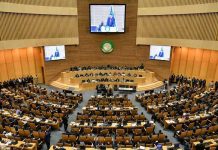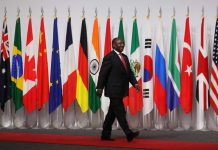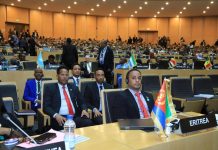Africa Press-Eritrea: East African nations took another step forward on regional integration this week, with an emphasis on measures to curb climate change impacts while developing economic opportunities.
Fourteen nations were present at a three-day meeting of the Intergovernmental Committee of Senior Officials and Experts (ICSOE), co-hosted by the Economic Commission for Africa (ECA) and, for the first time, Eritrea. The visit included trips to area dams, agriculture sites and a solar farm.
“A new peace dividend has emerged between Eritrea and Ethiopia. This has revitalized the regional dynamics of peace, security and development in the Horn of Africa region,” said Eritrean ambassador Tesfamichael Geratu.
He said the long-isolated Eritrea planned to work more closely with the ECA, the African regional body for the United Nations economic and social arm ECOSOC, particularly on energy and the “blue economy.” Participants drew on examples from Seychelles, Comoros and Madagascar to showcase how sustainable fishing, oceans and other water resources can boost African economic development.
“Regional integration was also highlighted in the sectors of tourism, a sector that currently employs over 7.2 million people and could benefit from a regional focus on intra-African tourism and urban tourism,” said UNECA. “Discussions were also held about the energy sector, where participants asserted the need to diversify financing sources to meet the goal of ensuring clean and affordable energy for all by 2030.”
Economic integration in the region, aligned with the African Continental Free Trade Area (AfCFTA), could help to create sustainable growth and add some 2 million jobs in East African economies.
“Transformation and improvements of our connectivity through roads, railways, seaports, airports, pipelines … will inevitably entail substantial financial and human capital, as well as technological and energy capacities,” said Eritrean foreign minister Osman Saleh, who opened the meeting.
“To put in place all these inputs, we should primarily value and mobilize our domestic resources. Africa has already drawn enough lessons from falling victim to global financial institutions and corporate conglomerates.”







